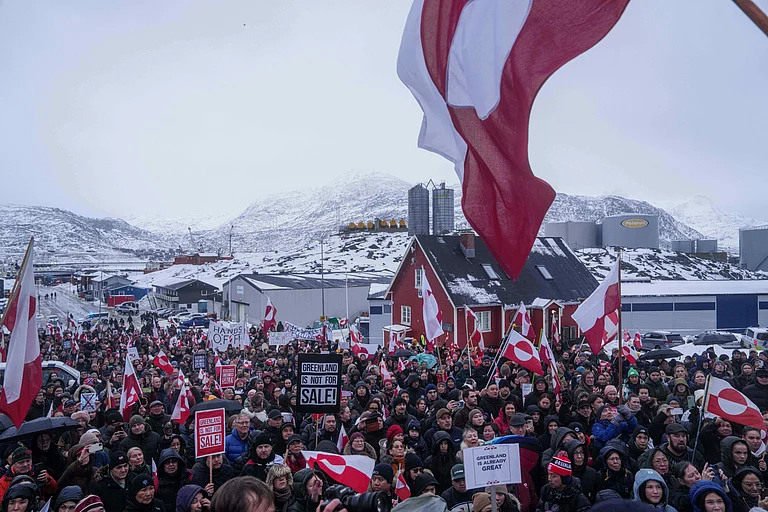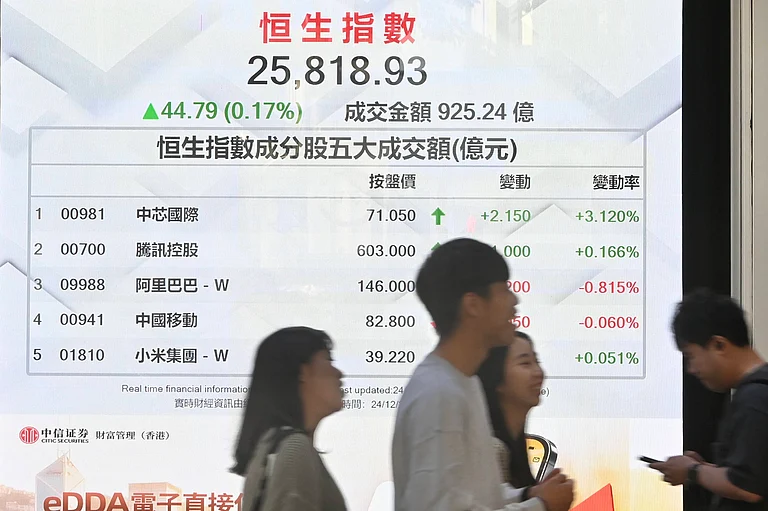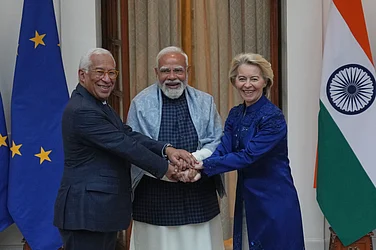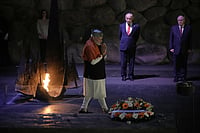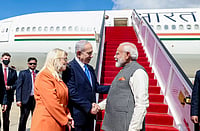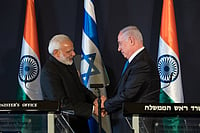2024 is mega election year world-wide. Spread through the year as many as 64 countries are due for polls. Some like Bangladesh, Pakistan, Taiwan, Indonesia, Iran, El Salvador as well as presidential elections in Russia are already done. Others are in line including India, the world’s largest democracy and the US, the oldest. UK, South Africa, the EU, Mexico, South Korea, Sri Lanka, Rwanda, Belgium as well as the European Parliament will choose new governments this year.
Altogether some 49 per cent of people across the globe are of voting age and will exercise their franchise. Half of the electorate are women and yet they continue to remain under-represented when it comes to holding political power nationally or in local areas. In many parts of the globe including liberal democracies like the US and several European nations women had to struggle for several decades to win voting rights and were granted the privilege just about a 100 years back. Yet women’s issues remain unresolved or in many case unattended by men who yield power. Representation of women in government remains abysmally low worldwide. Things are gradually changing but at a snails pace in many parts of the world.
Globally women have not been given their due. In Iran the religious leaders in power since the Iranian revolution of 1979 continue to dictate what women wear. The September 2022 protests triggered by the death of 21-year old Mahsa Amini arrested and tortured for defying Iran’s strict hijab protocol laid down by the authorities. The protests led to the death of 551 people including 69 women and children.
Why is women representation important ?
There are several reasons why women’s participation in political and public life is important. The United Nations has given six valid reasons for this. One is the justice argument: as women constitute half the population they have the right to be represented and have their voices heard. A woman’s experience is different from men’s and only a woman can highlight these problems for effective policy making and implementation. The interests of men and women are different and sometimes conflicting and therefore a woman’s view is essential. There is also the critical mass argument: that for women to achieve solidarity of purpose there has to be certain level of representation. The symbolic argument is when there are role models other women become confident and wish to do the same. Democracy means equal representation of women and men and there can be no true democracy unless both are included. This leads to openness and democratisation of institutions.
Yet there are exceptions to the general rule that women leaders promote issues important to women. There are many cases of female political leaders who belie the stereotype of women as more collaborative and conciliatory. Many do not rise above party affiliations and act according to their belief in the ideology their party represents. Women prime ministers of the past like Sri Lanka’s Sirimavo Bandaranaike, India’s Indira Gandhi, Pakistan’s Benazir Bhutto or Britain’s Margaret Thatcher did little to highlight women’s issue while heading their governments. Women politicians like their male counterparts have multiple identities, and their identity as women may not always prevail when they are identifying their priorities. Some early female politicians have a tendency to minimise their identity as women and their association with women's issues.
Elections to the European Union Parliament is scheduled for this summer where EU members vote to elect MEPs for the 720 seats, an additional of 15 from the current House. The EU has scored much better than most countries in having better representation of women. The European Parliament gender balance as of January 2024 is at 40 per cent women to 60 percent men. Yet there are just five European countries where women are head of state of the 27 countries that make up the EU. Within the member states there are vast discrepancies on women representation. While Sweden, Finland and Norway have 46 per cent women in their legislatures, France has 35 and Germany as much, Belgium is at 43 and Spain at 42. On the other hand Hungary and Malta both have just 13 per cent representation of women in Parliament.
In the United Kingdom where elections are due this year, women have done rather well. They comprise one-third of all members of parliament in the House of Commons. During the 2019 elections both Conservative and Labour fielded maximum women candidates. The Conservatives fielded 31 per cent of women, while Labour’s share was 53.1.
In Africa, Ghana, Mozambique. Madagascar, Senegal, South Africa and Tunisia will hold elections. South Africa and Rwanda have the best record of women participation in government. The African National Congress (ANC) has adopted progressive legislations and quotas to help women come into their own in exercising political power. South Africa is a stellar performer with nearly 50 per cent of MPs in the lower house of Parliament. This is also reflected in provincial and local bodies. Another topper in Africa is Rwanda. It is the first country with women in the majority in parliament, with 61.3 percent in the Chamber of Deputies and 37.4 percent in the Senate. Senegal too has an excellent record with women representation at 43.3 per cent in Parliament.
Ghana’s 1992 Constitution guarantees equal political rights but despite this there are not many women who are in positions of power in government. In 2012 Ghana had 11 per cent of women in parliament, after 2016 it rose to 13 per cent. In Tunisia where women earlier had a good representation is moving backwards from between 26 to 31 per cent between 2014--2018, to a dismal 16 per cent last year. Much of this is thanks to new electoral rules brought in by the president, where presidential polls are scheduled for this month.
In all there has been better representation of women in legislatures around the world though this has not necessarily led to a better deal for women in those countries.











